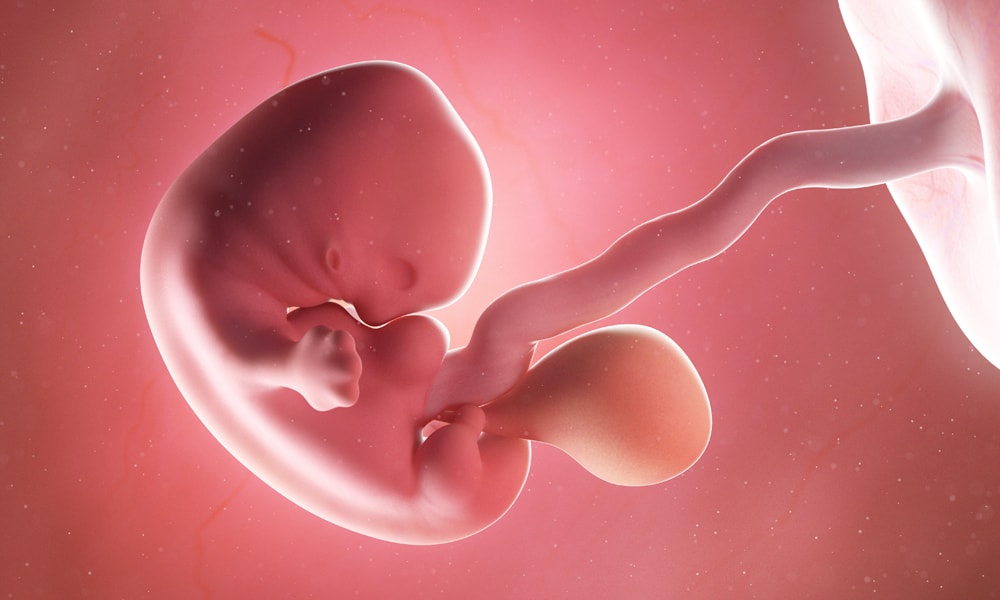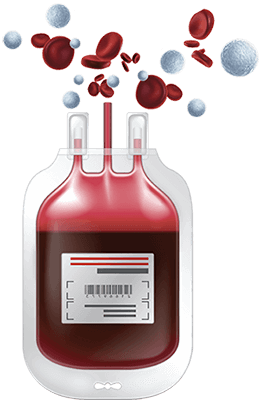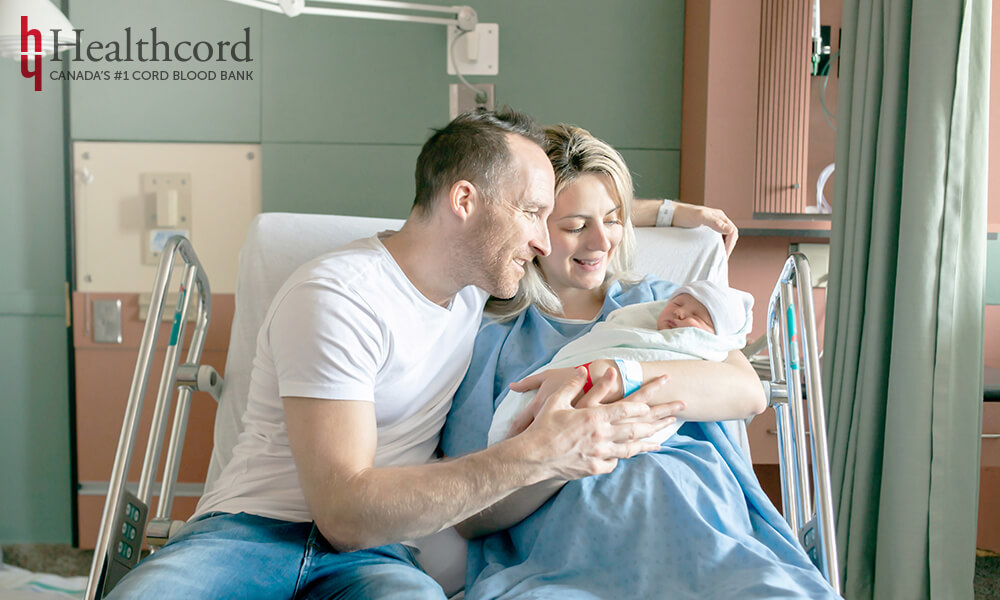Canada's Largest & Oldest Cord Blood Bank
Have you shared the big news with your family yet? You may not feel pregnant, but your uterus is continuing to stretch and expand, making room for the growing baby.
This Week’s Highlights
Your baby is just a tiny ball of cells
The zygote starts its journey down to the uterus
Amniotic fluid starts building up in your uterus
Your Baby at 7 Weeks
Your baby is the size of a blueberry, measuring about 0.51 inches (1.3 centimetres) from head to rump.
Baby Development at Week 7
Your baby still has a small tail, so is still technically considered an embryo. All of the features are now becoming more prominent (e.g. nostrils) and more complex (e.g. arms that bend).
Right now, your baby’s liver is making red blood cells (the blood cells responsible for carrying oxygen) until the bone marrow grows and takes over this role.
Most of the growth right now is concentrated around the head. Brain cells are being generated at such high speed that your baby’s brain is actually bigger than their body!

Other features in the head like the nostrils, the inner ear and the beginning of tiny eyelids are also in the making.
Amazing changes are also taking place in your baby’s arms. They are lengthening, and distinct features like the shoulders, upper arms and forearms are becoming more defined. Cartilage is forming between the bones, along with nerve cells. Your little ones hands still look like paddles, with fingers attached to them. In a few days, the same changes will take place in his or her legs and feet.
Also this week, a loop in the baby intestine will bulge out and form the umbilical cord, the essential connection between the mom and the baby. The cord contains distinct blood vessels, ready to bring oxygen and nutrients into the baby’s body and to remove waste products.
After the baby is born, the umbilical cord will be discarded. Did you know that the umbilical cord and the blood left over in it are valuable sources of stem cells? Find out more about newborn stem cells and cord blood banking here.

Pregancy Tip
You may need to change up your skincare routine to manage the acne, dry skin and patchy colouration that may develop during pregnancy. Check to make sure your skincare products are pregnancy safe!

Your Bump at 7 Weeks
Do you see a bump yet? If you do, it’s likely that bloating and water retention associated with pregnancy is giving your belly the appearance of a bump. Your bump won’t be making an appearance until after week 12.
6 Easy Steps to Banking Your Baby’s Cord Blood
Cord blood banking is easier than you think. Cord blood and tissue collection are non-invasive, safe and painless. It will not interfere with your birth plan or the time spent bonding with your baby.
How Your Body is Changing
Before pregnancy your uterus was the size of a clenched fist. It has continuously stretched and expanded over the past several weeks to double in size and is now the size of a grapefruit. You have likely felt the accompanying cramps and twinges associated with this growth.
Following implantation, the cervix starts to soften and swell. Next, the mucosal cells on the surface of your cervix initiate the formation of the mucus plug by pumping mucus into the cavity. The mucous plug is exactly what the name implies, it is a large, gelatinous mass that is formed in the cervix. The pregnancy hormone progesterone ensures that the mucus plug always remains fresh.
Within the sticky fluids of the mucus plug are antibodies that will protect your baby from invaders such as bacteria, virus and other pathogens. It remains intact until around 37 weeks, and is expelled when labour begins.
Even through there are 33 weeks left before the baby arrives, you breasts are already going through big changes. Your breasts may increase by an entire cup size during this time. Fat build up and increased blood flow will change the shape of your nipples, making them more sensitive and tender. The areola will also change in size and color, and continue to grow in the ensuing months.
If you are not experiencing any of these pregnancy symptoms at week 7, count your lucky stars. There is not need to worry. The absence of symptoms does not imply there is something wrong. Every pregnancy is different and every woman experiences it differently.
You can always talk to you healthcare provider if you are worried. We recommend enjoying the lull while it lasts.
How Far Along are You?
6 weeks in, 34 weeks to go! You are still in the first trimester of your pregnancy. Even though pregnancy is measured in weeks this means you are in your second month of pregnancy.
Diet at Week 7
Does the smell of coffee send you running to the bathroom? Do you suddenly despise one of your favourite foods? Food aversions are quite common during pregnancy and they can make meal times unpleasant.
But it is important that you eat enough to support your body and to sustain the growth of your baby. Here are a few tips to make dinner time more tolerable:
- Go bland – Avoid spicy, greasy or fatty foods that can trigger nausea.
- Find your new comfort food(s).
- Try cold foods – Often food aversions can be linked to the enhanced sense of smell you develop during pregnancy.

What is Cryopreservation?
Pregnancy Symptoms at Week 7
Frequent visits to the bathroom – Pregnancy hormones are to be blamed for your constant visits to the bathroom. There is an increase in blood flow to the kidneys, making them efficient at clearing out waste. Your growing uterus is also partially to be blamed. It is putting pressure on your bladder, so there is less space to store urine. Hopefully this will ease out a bit as you head into your second trimester, as your uterus moves higher up in your abdomen.
Heartburn and indigestion – Your digestive systems behaves differently during pregnancy owning to pregnancy hormones. The same hormones that relax your muscles and joints, also relax muscles in your digestive tract. This means food is passed along at a slower rate through your system causing bloating, gas and heartburn. The slow down is actually beneficial to the baby, since it gives your body time to better absorb nutrients from food, which can then be passed on to the baby through the placenta. Try keeping a food diary and taking note of the food that lead to indigestion and heart burn so you can avoid them.
Fatigue – At this very moment your body is busy trying to support all the changes that have to be made to accommodate the growth of your baby. It is no wonder you are feeling worn out and tired. Make sure you are getting enough calories and rest.
Excessive saliva build up – If morning sickness wasn’t bad enough, now you have to also deal with extreme saliva build up in your mouth. Ptyalism gravidarum is a condition that is more common in expectant moms who experience nausea and vomiting, perhaps because they are a tough time swallowing saliva.
Invest in Your Baby’s Future by Preserving Newborn Stem Cells



